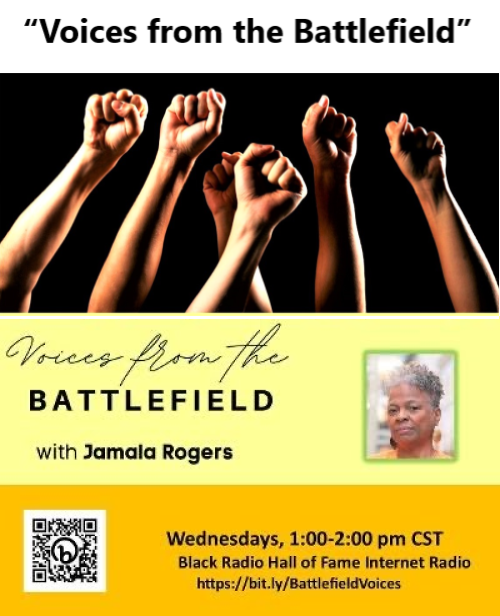St.
Louis
is now facing a situation that very few
predominantly Black cities have had to face
in the last fifty years - an African
American youth bringing violence into a school
building. Having been in, out and around
public school classrooms for decades, my
experience has been no matter how rough and
tumble the students were, the school was
respected as a relatively safe space.
Orlando Harris shattered that reality on
October 24, 2022.
Harris was a 2021 graduate of
Central Visual and Performing Arts High
School and had no criminal record. The
troubled teen broke a window to gain access
to the locked building, armed with an AR-15.
He killed one student and one teacher,
injured seven more and traumatized hundreds
of other students, before being killed by
police.
The community is still reeling from
the tragedy. It’s still too early in the
investigation to fully comprehend what
happened and why. What we can unequivocally
concede is that students will need
cultural-sensitive counseling, and lots of
understanding. They haven’t fully recovered
from three years of COVID-19 and remote
learning.
Along with 600 rounds of ammo, the
troubled Orlando left a note behind that
gives us some insight into his psyche. The
trigger that sent him on the rampage remains
unknown.
“I
don’t have any friends. I don’t have any
family. I’ve never had a girlfriend. I’ve
never had a social life. I’ve been an
isolated loner my entire life. This was the
perfect storm for a mass shooter.” These are
words of a teen turned killer. It is a sad
commentary on the life of a Black kid in
2022 who couldn’t see a future for himself.
This kind of isolation, compounded
by documented bullying, is the common theme
of most school shooters. Most school
shooters are males. Most school shooters are
white. We’ve seen their tragic lives played
out on the television screen since the
Columbine High School shooting that first
projected the phenomena of the lone, white
misfits of society.
There
have
been a handful of Black youth who have taken
up the gun against classmates since 1979. In
a compilation by Peter Langman, Ph.D.
titled, School
Shooters Who Were Not White Males, I could only
identify three Black teens who fit the
category of bonafide school shooters. These
are armed, young people who go into the
school building with the sole intent of
doing harm to classmates and school
employees.
Thirteen-year-old Floyd Warmsley
was in Portland, Connecticut. Nicholas
Elliott, 16 years old, attended Atlantic
Shores Christian School in Virginia Beach,
VA. Toby Sincino, also 16 years old, went to
Blackville-Hilda High School in Blackville,
SC. What these three have in common is that
they attended schools in non-urban areas
where Black students are a minority. They
were bullied, pushed up against the wall by
a racist society and an unsupportive school
environment.
Toby was on Zoloft for his mental
and emotional issues. He killed himself at
the school site. Mental health issues and
anti-depressant prescriptions seem to plague
these shooters. Floyd and Nicholas were
convicted of their crimes and are serving
time.
There is an extensive body of study
on white, male shooters. There has been a
coloring of mass shooters over time - a
Latino here, an Asian there. For years,
Black folks would claim serial killers were
a white thang. Until it wasn’t. We were
almost boastful that our kids could never be
mass murderers. Now, it’s at our school
steps, and our communities must brace for
the other Orlandos that the capitalist
system is creating.
Orlando Harris shared with us what
were the forces of a “perfect storm.” No
doubt, he cried out for help, for love, long
before he went on his kamikaze mission. It’s
up to us to commit to recreating a just and
safe world that nurtures human life and
hope.


